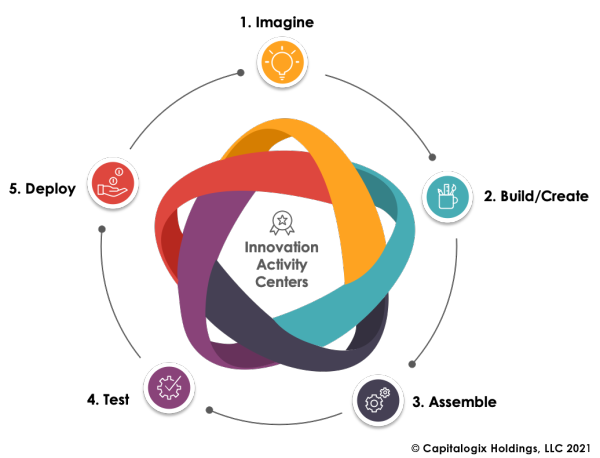« Here Are Some Links For Your Weekly Reading - June 6th, 2021 | Main | The Right People To Raise Your Thinking »
June 06, 2021
Comments
Search
Moving the Markets
Lighter Links
Recent Posts
- Digesting a Bigger Future
- Here Are Some Links For Your Weekly Reading - July 20th, 2025
- How Has The Job Market Changed Since 1988?
- Do You Think You're Smart?
- Here Are Some Links For Your Weekly Reading - July 13th, 2025
- When Worlds Collide: Timeless Wisdom & Evolutionary Technology in Trading with Matthew Piepenburg
- The Benner Cycle: How Not To Predict Markets
- Here Are Some Links For Your Weekly Reading - July 6th, 2025
- Market Growth in the First Half of 2025.
- How Long You Have Left
Getting To Next: How Thoughts Become Things
Two weeks ago, I introduced Innovation Activity Centers which are the building blocks for my technology adoption model.
Today, I have a video and a worksheet for you that goes into the overarching Technology Adoption Model Framework. It explains how thoughts become things and how ideas scale with respect to capability, audience, and monetization.
The four base stages of this framework are: Capability –> Prototype –> Product –> Platform.
It's a great use of 20 minutes. Check it out.
While the Technology Adoption Model Framework stages are important, the ultimate takeaway is that you don't have to predict what's coming, only how human nature works in response to the capabilities in front of them.
It's a bit cliche, but to paraphrase Wayne Gretzky, you just have to skate to where you think the puck is going to be.
Desire fuels commerce. As money fuels progress, desire grows ... and so does the money funding that path. As such, the path forward is relatively easy to imagine.
This isn't about predicting specific technologies, but rather about the capabilities people will want. I think of it as anticipating the natural path. It is easier to ride the wave than it is to fight nature.
Each stage is really about the opportunity to scale desire and adoption.
It isn't really about building the technology, rather it is about supporting the desire.
If you understand what is coming, you don't have to build it, but you can figure out where you want to build something that will benefit from it.
This model is fractal. It works on many levels of magnification or iteration.
What first looks like a product is later seen as a prototype for something bigger.
For example, as a Product transforms into a Platform, it becomes almost like an industry of its own. Consequently, it becomes the seed for a new set of Capabilities, Prototypes, and Products.
SpaceX's goal to get to Mars feels like their North Star right now ... but once it's achieved, it becomes the foundation for new goals.
This Framework helps you validate capabilities before sinking resources into them.
In the video, I walk you through several examples of companies, their innovations, and how they fit into each stage. I even used Capitalogix as an example.
I'm also attaching a fillable PDF of the form we used so that you can run through this with your business as well.
As I continue to refine and work with this framework, I look forward to improving it and sharing it with you all.
As the world continues to change faster and more dramatically, this framework will help you anticipate changes, and it will also help you take advantage of them.
If you have any questions or comments about the idea, or how to implement it, feel free to reach out.
Onwards!
Posted at 07:48 PM in Business, Current Affairs, Gadgets, Ideas, Market Commentary, Personal Development, Science, Trading, Trading Tools, Web/Tech | Permalink
Reblog (0)